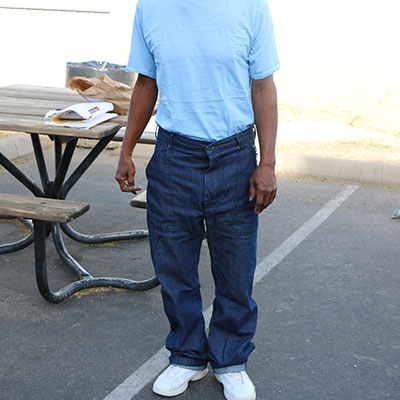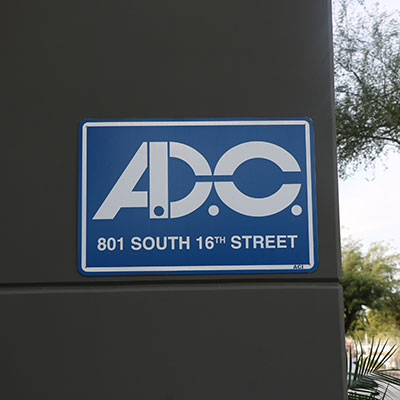Spotlight: DES Resource Fair
Imagine what it would be like to enter the working world at age 46, having never held a real job or even having the freedom to look for one. Such is the case of one man who attended an Arizona Department of Economic Security (DES) Resource Fair in December. This particular fair was held at an Arizona Department of Corrections (ADC) parole office. A mere six weeks out of prison, where he’d served 30 years for a crime he didn’t wish to divulge, this man we’ll call “John” had a lot of needs—a job, health insurance, and money for food—and found resources all in one place.

“It gives me all the information I need, and they’re also going out of their way to ask me about my skills, and send me in the right direction,” said John. “It’s been very good.”
All six DES Program Divisions were represented at the fair, the first ever to be held at an ADC parole office. Tables were set up with printed material available, and DES colleagues were on hand to answer questions.
“This is a really huge benefit for the officer and the offender,” said ADC Community Corrections Manager of Programs and Projects, Nicole Studer. “They can come in, see their parole officer, the officer brings them in, gets them connected with these resources on site.”
The Division of Rehabilitation Services’ (DERS) partner program ARIZONA@WORK is a permanent fixture in this office, always available to help parolees find jobs, which helps them get re-integrated into society. ARIZONA@WORK State Re-Entry Coordinator, Rich Martinez, says work is top of mind, so it made sense to have a permanent place in the parole office.

“They [inmates] get released, they’re brought into the parole office, they meet with their parole officer, they do their intake, and the first question comes out, ‘I need a job.’ So they walk right down the hallway and meet with an ARIZONA@WORK representative,” said Martinez.
Inmates at Arizona prisons are released daily, at the rate of about 1,200 a month. At any given time, 6,000 parolees are being supervised by ADC. The parole offices in Maricopa County are the busiest, with the greatest number of parolees in and out. The ARIZONA@WORK team, through coordination with DES, is establishing services at a parole office in Mesa as well as Tucson. In order to reduce recidivism in prison, Studer says resources and services such as those DES provides on-site are a necessity. DES and ARIZONA@WORK are evaluating the success of this initiative and working to identify resources that could be redirected to further this important cause.
“I think a lot of people don’t understand how difficult it is for someone coming out of prison—just the transportation—to get to see their PO [parole officer]. The PO can give a list of resources, but that’s one more bus trip, one more thing to navigate,” said Studer. “A lot of these folks are really overwhelmed when they come out. They’re not really prepared, many of them have never had a real job, a legal job, so the ability to do this one-stop shopping and have the resources immediately available is going to increase their likelihood of being successful. It’s a huge deal.”
Some of those who stopped by the fair December 20th were just out prison, still in their prison-issued blue tee shirts and denim jeans. Others were in street clothes, coming by the office to meet with their parole officers. ADC staff was busy outside the building, directing as many as they could to talk to DES representatives inside. Some, like “John,” who’d spent most of his life in prison, made a special trip just to the fair, at the suggestion of their parole officer.

“There are many more services and many more people willing to help than I ever expected,” said John, who, despite his past, has hope for the future and is grateful for the opportunities.
“You can either go after it and look for opportunities, or put your head down and cry, and that’s not going to work,” he said. “Being optimistic and seeking every opportunity you can is the way to do it.”
It’s too early to tell if having an ARIZONA@WORK presence in a parole office is actually reducing recidivism. It’s only been in place since March 2016, but Martinez says anecdotal evidence suggests this pilot program is working, or at least, has resulted in jobs for some former inmates. As the state re-entry coordinator, Martinez regularly goes into the prisons to educate inmates on what’s available to them upon their release.
As the statewide workforce development network, ARIZONA@WORK offers a variety of services, helping both job seekers and employers. It’s a public/private partnership with 47 offices around the state. For more information, go to Arizonatwork.com.
By Connie Weber

